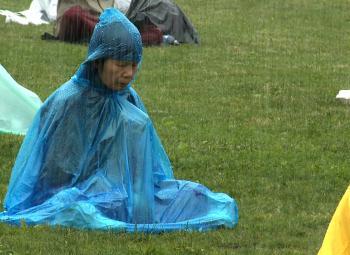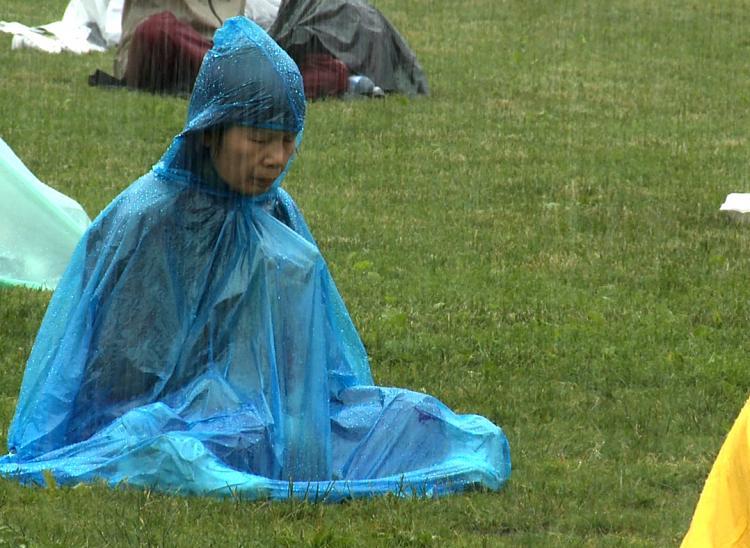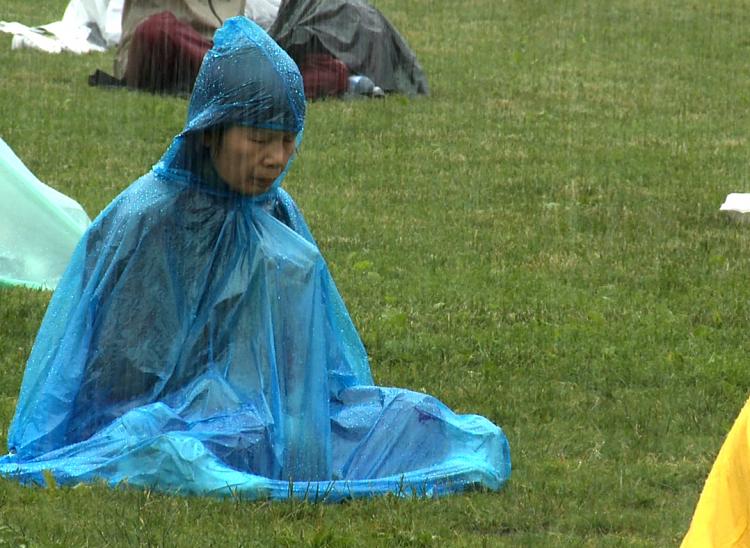Rights Defenders, Hu Supporters Flood Parliament Hill for Chinese Leader’s Visit
Rights activists and Hu supporters were separated by fences on both sides of Parliament Hill.

A Falun Gong practitioner meditates on Parliament Hill in heavy rain on June 24 during Chinese leader Hu Jintao's official visit to Canada before the G20 meetings in Toronto later this week.
|Updated:



